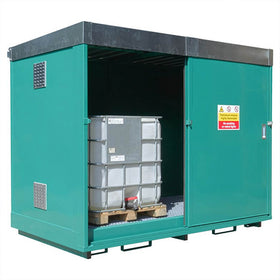Arctic Council reaches consensus on oil spill repsonse
The Arctic Council will meet in Sweden this May to approve the finalised document “Co-operation on Marine Oil Pollution Preparedness and Response in the Arctic”; a non-binding consensus for spill response preparedness.
The 21-page paper outlines a mandate that the eight countries that comprise the Arctic Council “shall maintain a national system for responding promptly and effectively to oil pollution incidents.”
The all encompassing agreement will stipulate that each country will be responsible for notifying about, monitoring and assisting fellow countries in the event of a spill.
However, a draft of the paper, which was obtained by Greenpeace, has been criticised by various environmental groups and speakers who have called the agreement “vague” at best.
“The document doesn’t get to grips with the risks of a spill in a meaningful way,” claimed Ruth Davis of Greenpeace.
The document makes no mention of specific details relating to how operations would work in the event of a spill, in terms of the number of ships, workers and the materials that may be required to clean up a large spill. Instead it provides a framework on how to manage spills that cross from one Arctic marine area to another.
Rick Steiner, a former professor at the University of Alaska and a long standing critic of the oil industry, believes “We should be far beyond this rudimentary document”, and he alluded to the need for the Arctic Council to make greater efforts towards universal spill prevention.
The Norwegian shipping group, DNV, also weighed in, claiming that, “present oil spill response technology ...can’t effectively collect oil in ice-covered waters” or “detect a spill on water in permanent darkness and bad weather.”
Universal agreement on how best to handle the clean up of a spill is imperative if the oil industry is to drill in the Arctic, given that a future spill is inevitable. The document drafted by the Arctic Council will help to expedite the overly bureaucratic logistical processes involved in multiple party responses to a spill.
However, the problems encountered by Shell in the infancy of their preparatory drilling in the Arctic, highlight the challenges that will need to be overcome in terms of spill prevention, spill containment and the clean up methods employed for an unprecedented spill in the Arctic.
www.yellowshield.co.uk



